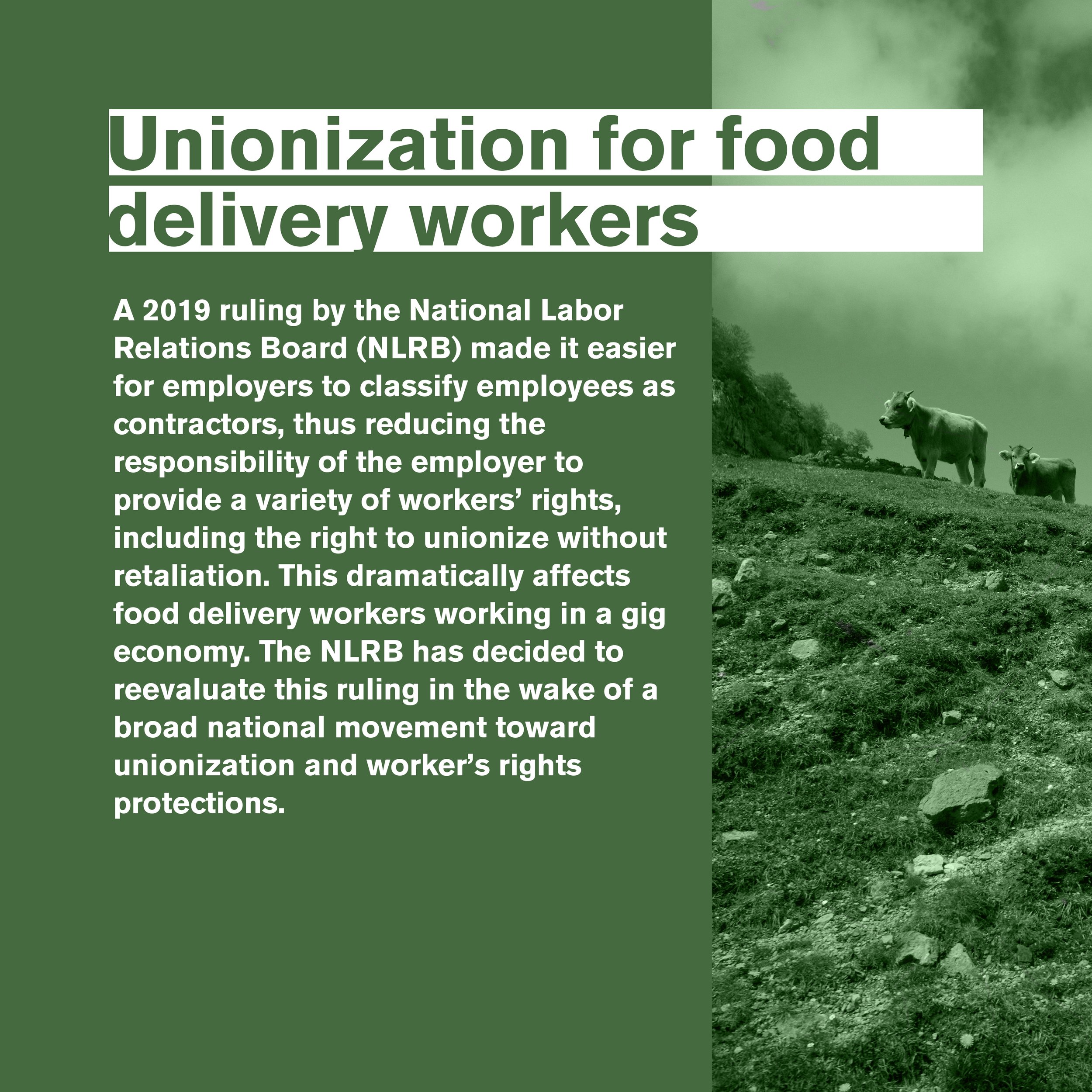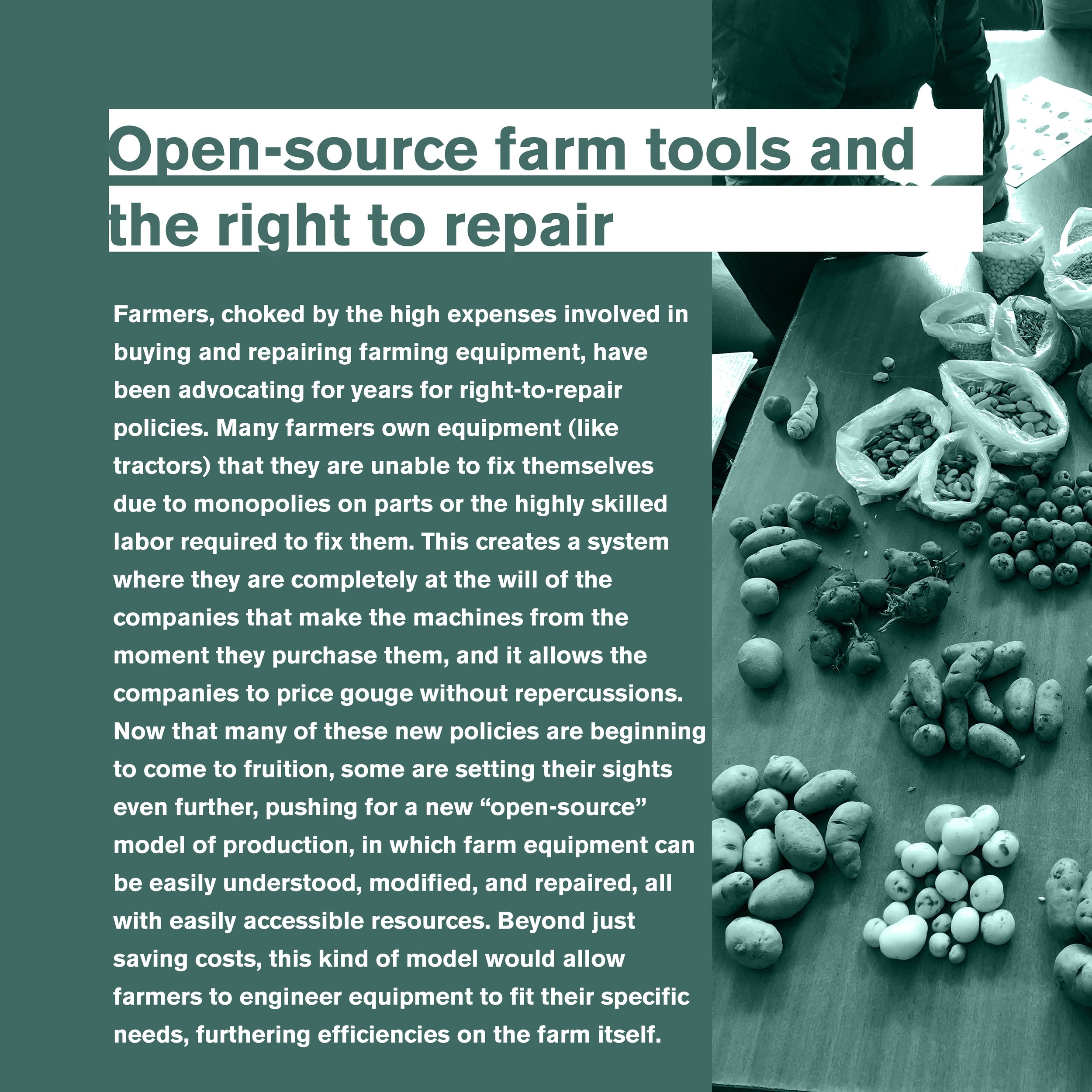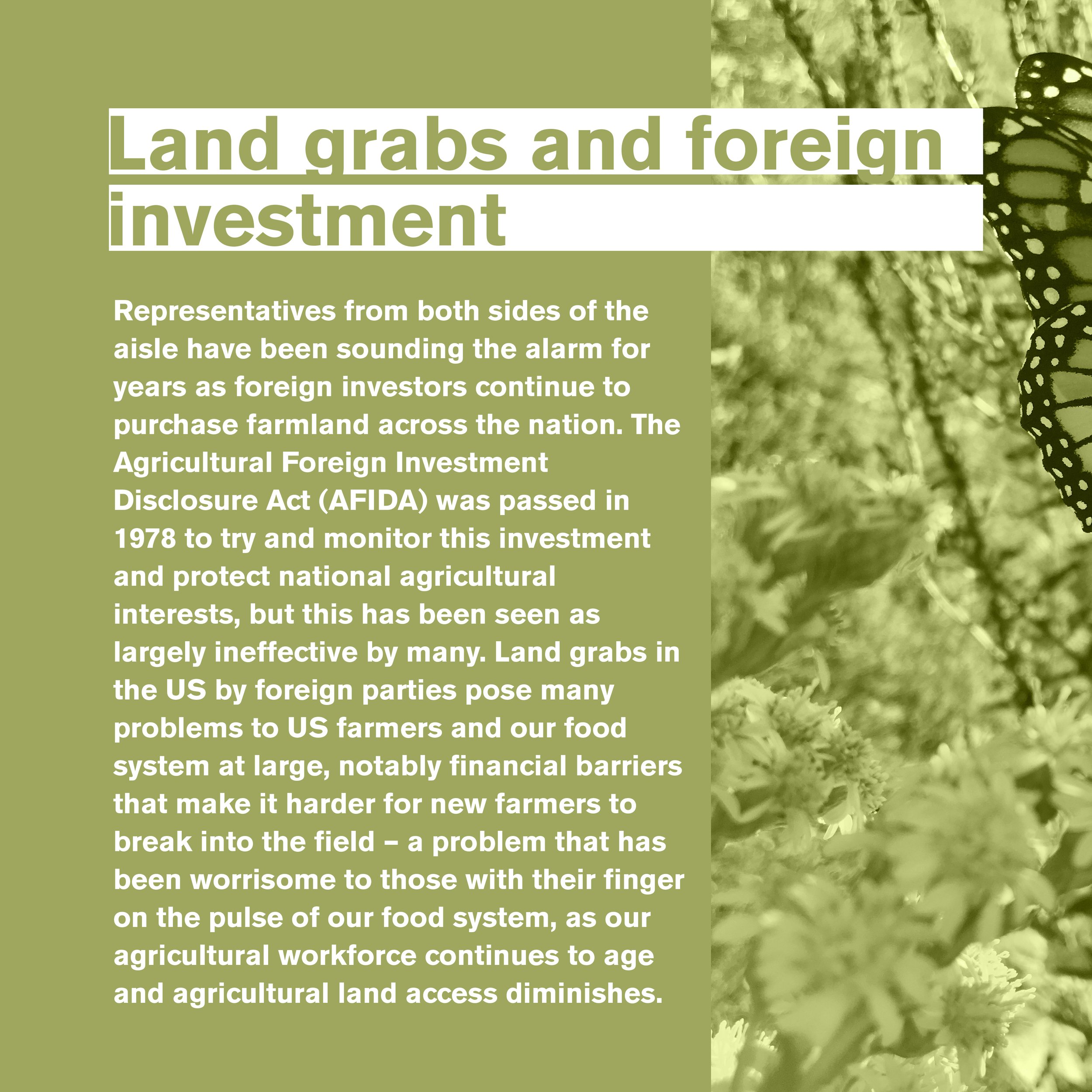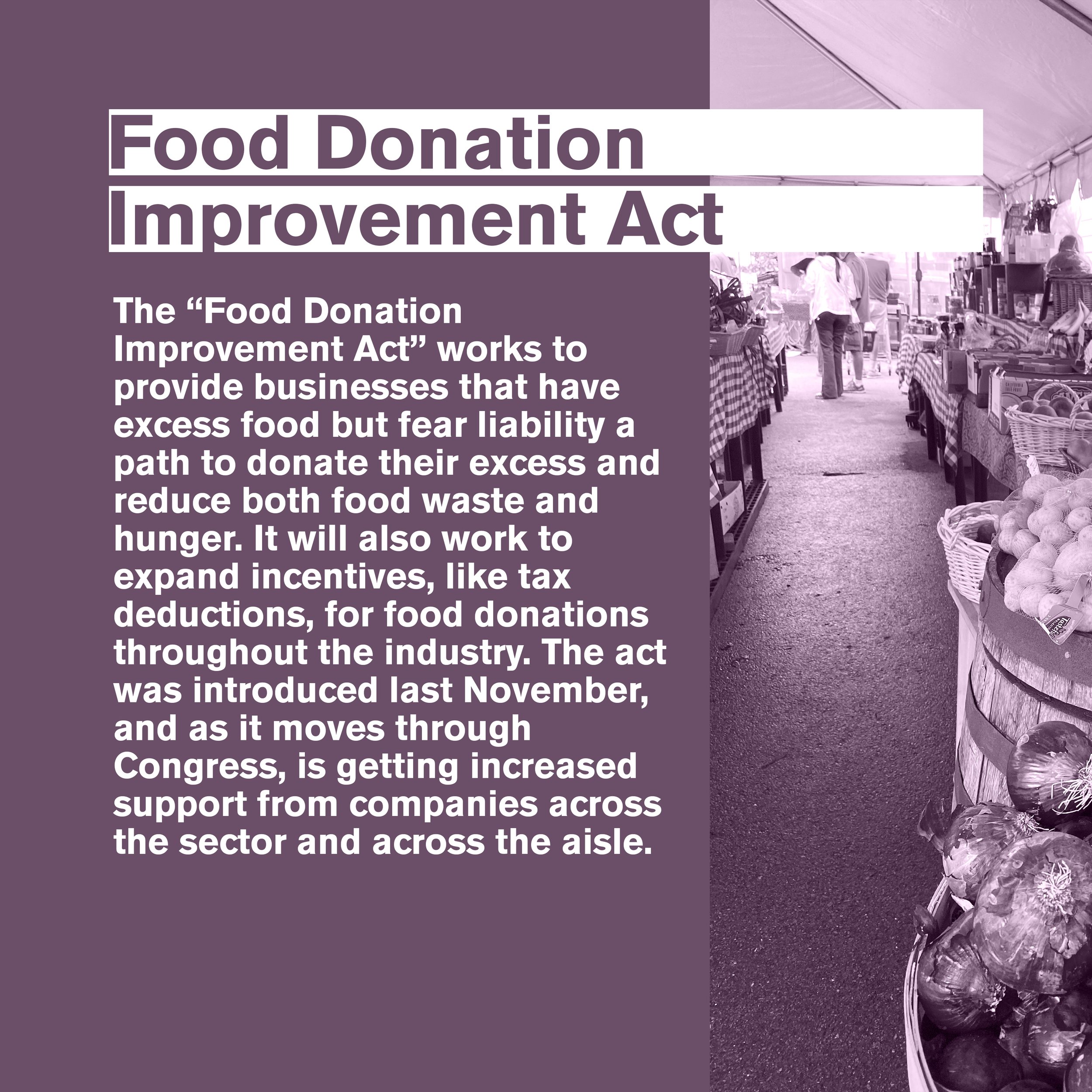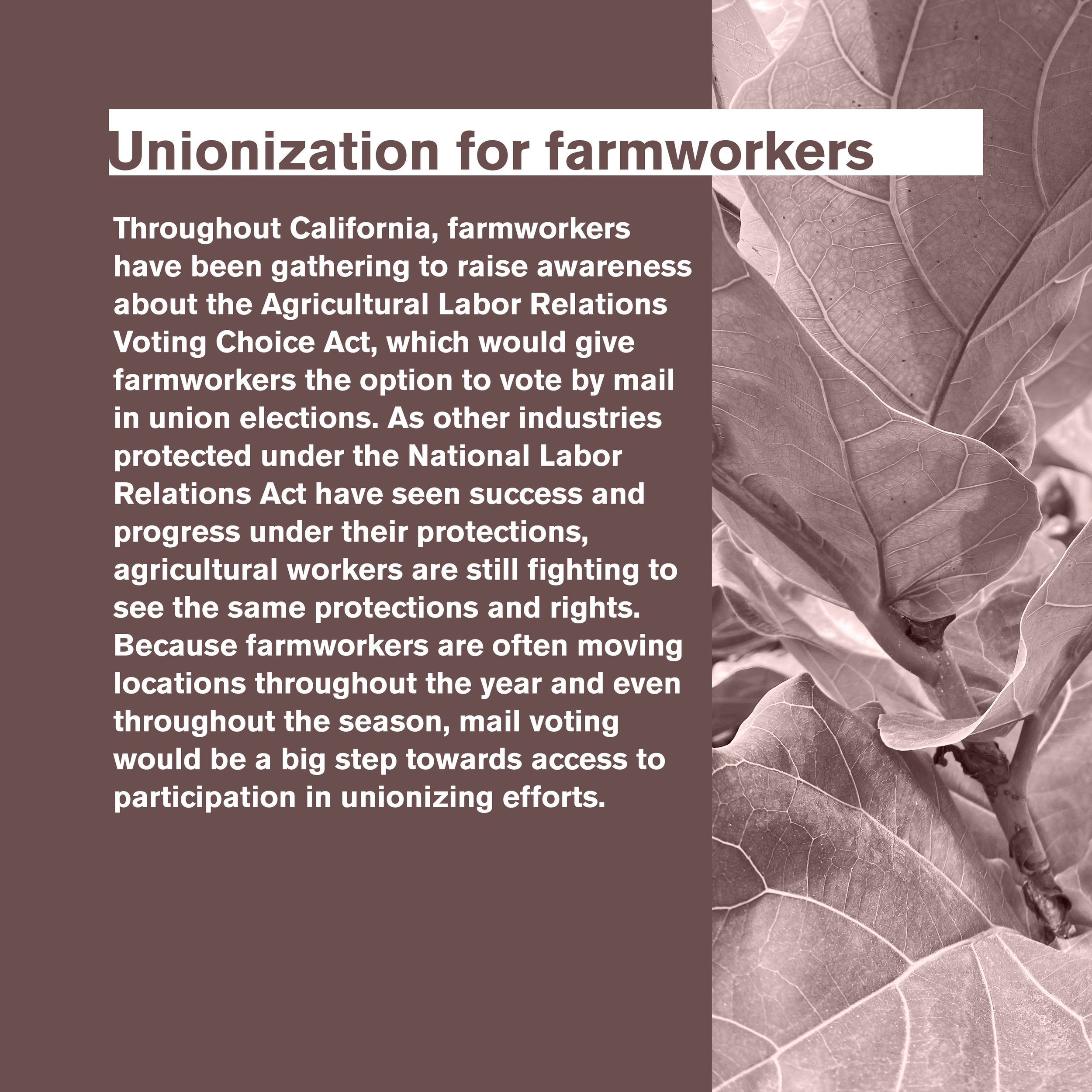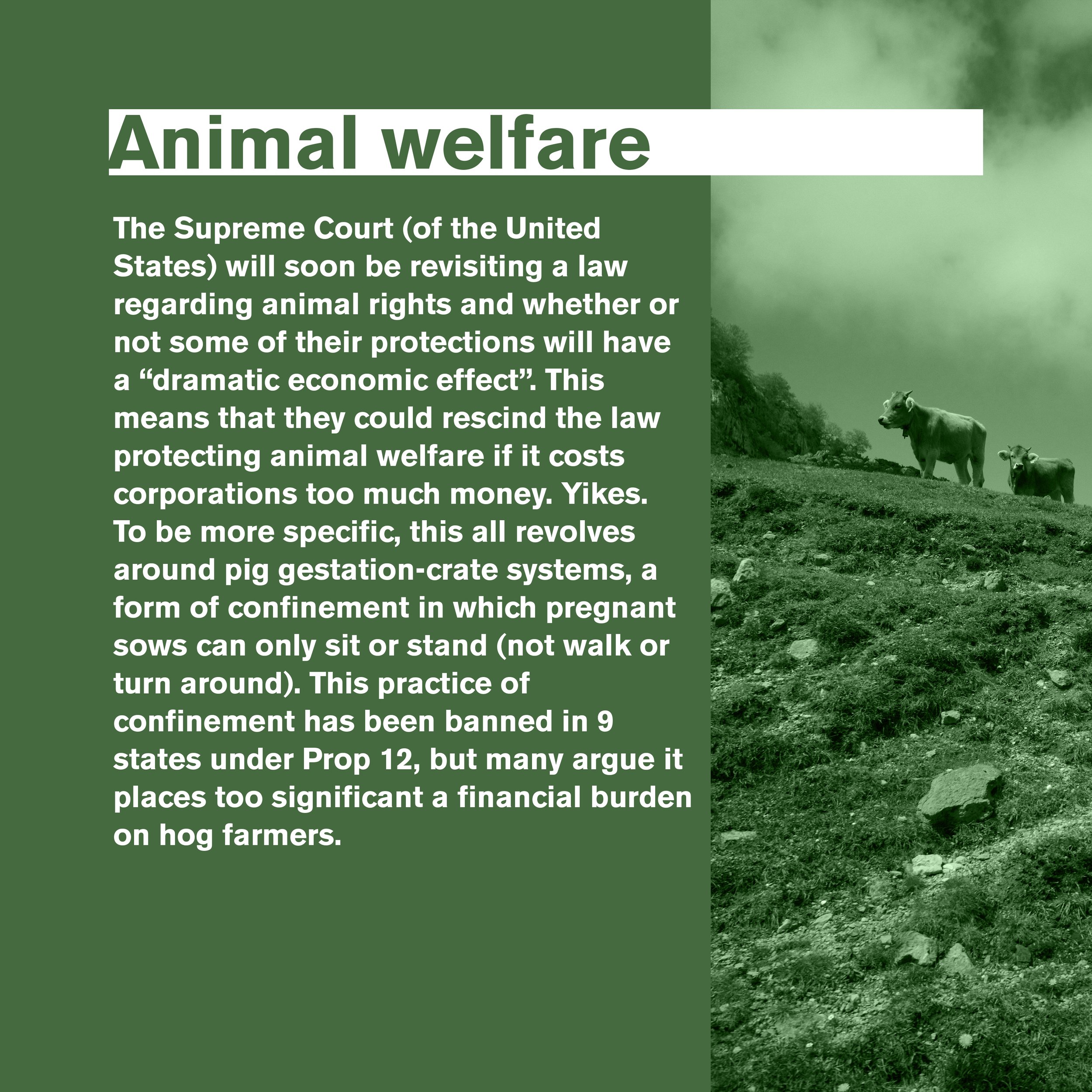Spring 2022 Policy Updates
Back in January, we rounded up a lot of the issues in food and agriculture policy that we thought were relevant, and we found it was a great way to gather our thoughts around food policy and make things a little more “digestible.” We did it in March, April, May, and July as well, and now we’re back with some spring updates.
Food Donation Improvement Act
The “Food Donation Improvement Act” works to provide businesses that have excess food but fear liability a path to donate their excess and reduce both food waste and hunger. It will also work to expand incentives, like tax deductions, for food donations throughout the industry. The act was introduced last November, and as it moves through Congress, is getting increased support from companies across the sector and across the aisle.
Unionization for food delivery workers
A 2019 ruling by the National Labor Relations Board (NLRB) made it easier for employers to classify employees as contractors, thus reducing the responsibility of the employer to provide a variety of workers’ rights, including the right to unionize without retaliation. This dramatically affects food delivery workers working in a gig economy. The NLRB has decided to reevaluate this ruling in the wake of a broad national movement toward unionization and worker’s rights protections.
Guaranteed income for farmworkers affected by drought
A new bill proposed by a California state senator aims to allocate millions of dollars toward a guaranteed-income program for farmworkers affected by drought. Drought has posed a significant burden on not just farmers, but farmworkers who often bear the brunt of reduced output and sales. This bill is proposed in an effort to sustain this workforce and lift many within it out of poverty.
Open-source farm tools and the right to repair
Farmers, choked by the high expenses involved in buying and repairing farming equipment, have been advocating for years for right-to-repair policies. Many farmers own equipment (like tractors) that they are unable to fix themselves due to monopolies on parts or the highly skilled labor required to fix them. This creates a system where they are completely at the will of the companies that make the machines from the moment they purchase them, and it allows the companies to price gouge without repercussions. Now that many of these new policies are beginning to come to fruition, some are setting their sights even further, pushing for a new “open-source” model of production, in which farm equipment can be easily understood, modified, and repaired, all with easily accessible resources. Beyond just saving costs, this kind of model would allow farmers to engineer equipment to fit their specific needs, furthering efficiencies on the farm itself.
Land grabs and foreign investment
Representatives from both sides of the aisle have been sounding the alarm for years as foreign investors continue to purchase farmland across the nation. The Agricultural Foreign Investment Disclosure Act (AFIDA) was passed in 1978 to try and monitor this investment and protect national agricultural interests, but this has been seen as largely ineffective by many. Land grabs in the US by foreign parties pose many problems to US farmers and our food system at large, notably financial barriers that make it harder for new farmers to break into the field – a problem that has been worrisome to those with their finger on the pulse of our food system, as our agricultural workforce continues to age and agricultural land access diminishes.
Unionization for farmworkers
Throughout California, farmworkers have been gathering to raise awareness about the Agricultural Labor Relations Voting Choice Act, which would give farmworkers the option to vote by mail in union elections. As other industries protected under the National Labor Relations Act have seen success and progress under their protections, agricultural workers are still fighting to see the same protections and rights. Because farmworkers are often moving locations throughout the year and even throughout the season, mail voting would be a big step towards access to participation in unionizing efforts.
Animal welfare
The Supreme Court (of the United States) will soon be revisiting a law regarding animal rights and whether or not some of their protections will have a “dramatic economic effect”. This means that they could rescind the law protecting animal welfare if it costs corporations too much money. Yikes. To be more specific, this all revolves around pig gestation-crate systems, a form of confinement in which pregnant sows can only sit or stand (not walk or turn around). This practice of confinement has been banned in 9 states under Prop 12, but many argue it places too significant a financial burden on hog farmers.

